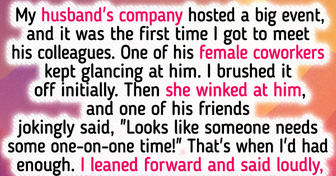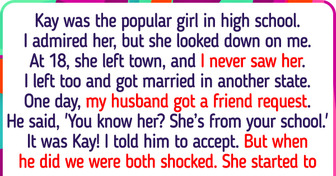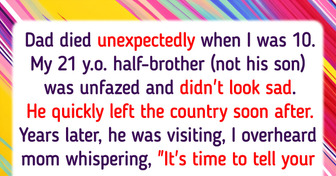12 People Whose Medical Visits Went Horribly, Horribly Wrong

Real beauty does not depend on external qualities, it comes from our behavior. In his book, The Like Switch: An Ex-FBI Agent’s Guide to Influencing, Attracting and Winning People Over, Dr. Jack Schafer, a former FBI agent, writes about the formula of friendship he derived and the laws of attractiveness that will surely help each person to establish relations and make surroundings trust him. His methods have been successfully used by American intelligence services for 20 years and have recently become public.
Bright Side chose the simplest but effective techniques that will surely help you at work and in your personal life. At the end of the article, the formula of friendship developed by this special agent is presented, it clearly explains how relationships between people are formed.
Did you notice that women bend their head to the side more often than men? The similar method men use in business when they keep straight to emphasize dominance. In informal communication, the inclination of the head to the side is a sign of trust; in the animal world, the jugular vein is shown only to those considered harmless and cute.
The signals that turn off: rolling your eyes with the head tilted back. Even if a person does this as a joke, very often such a signal is perceived as hostile.
People raise their eyebrows when meeting other people to inform others that they do not intend to show aggression. Our brain recognizes this signal from a distance of up to 2 m and perceives such a person as pleasant in communication. If you like a person you don’t know, give them a quick distant signal by uplifting your eyebrows.
The signals that turn off: long eye contact when playing with eyebrows, frowning brows, gloomy or evaluative look.
When the brain recognizes a sincere smile, it makes you smile back and starts producing endorphins that help feel a little more joy. Pleasant experience pushes people to continue communicating; we tend to visit the places where we feel good more often.
With a real smile, small wrinkles around the eyes appear and cheekbones and the corners of the mouth move upwards. It’s not that easy to fake this smile — you will have to think about something funny and pleasant.
The signals that turn off: a cold gaze and a tight smile, a smile with a grin.
Never say ’You are welcome" when responding to a person for the service rendered to them. Instead say, “I think you would have done the same thing if you were me.” Such statement evokes a sense of reciprocity: a person feels the desire to do something for you in return to thank you.
Do not hesitate to ask a person for a small favor such as give advice, help to choose something, such as share a book. We like to feel important in front of others, it increases our self-esteem. Admit it, it’s nice to be in the company of someone who admires you.
To prevent awkward pauses in the middle of a conversation, use a light sympathetic statement related to the last phrase of the person with whom you’re speaking. This is a fairly simple way to continue the conversation and create a relaxed atmosphere.
Whispering is perceived as an intimate form of communication. Try to occasionally say certain phrases in a whisper, leaning slightly toward the other person, as if you are sharing a secret. A person will instinctively lean towards you to hear better. Minor violation of personal space and the feeling that you shared a secret will bring you together.
The signals that turn off: loud speech, backward distancing or leaning on the back of a chair.
The best way to make a compliment is to encourage a person to praise himself. During a conversation, urge your opponent to talk about their achievements or merits, then show surprise, “Did you really do it yourself? How did you manage to do it?” Such questions will urge a person to compliment themselves.
You can also try to make a compliment from a third person. For example, say that your mutual friend noted an excellent sense of humor or praised their diligence.
The signals that turn off: a compliment is often regarded as flattery especially if it does not relate to the achievements or merits of a person but to their appearance or innate abilities. People love when something that was achieved by working hard is noticed in them.
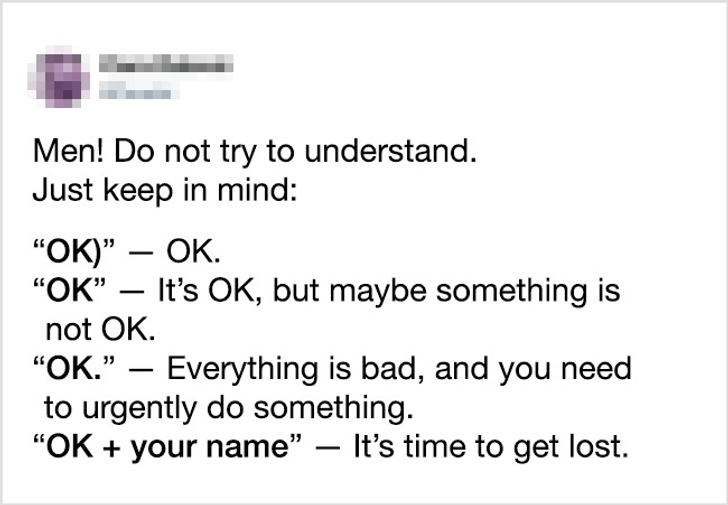
Make a deliberate mistake during the conversation so that the interlocutor sees it. Show hesitance and let him correct you. The opponent will feel more confident realizing that you are also a person and will treat his possible awkwardness with understanding. That’s where the law of similarity works: the more you have in common, the more often you communicate and become closer.
70% of important information is shared while eating. Their gestures at this moment reflect emotions, feelings, and sympathies. If the interlocutor puts the cup as if they were building a wall, this indicates a desire to increase the distance. The role of a cup can be replaced by a flower vase or an advertising stand. Do you remember that when you sit down at the table with friends, you immediately remove all unnecessary things to the side to create an open space for communication?
A shared plate is a kind of a friendship test — ask if you can try something from the plate of your companion. Not everyone will agree to share food but this insignificant arrogance helps to get closer. If we share food with a person, we consider them a friend.
People touching their lips with their fingers or objects feel shy. This will happen if you ask an uncomfortable question or bring up a topic which the interlocutor will want to avoid. Watch these gestures to react and correct your own behavior in time.
Learn to give the correct signals with your pupils. Our brain likes the enlarged pupils of the interlocutor as it is a sign of sympathy and interest. Do you want to be liked by another person? Invite them to dinner somewhere with dim lighting or look at them with a defocused gaze where the pupils expand, the eyes appear darker, almost black, making your look especially attractive.
Opposite reaction: narrowed eyes, compressed lips, ostentatious yawn, wrinkled nose.
This phenomenon is called the law of the rocky road. It happens that people like each other only after a series of obstacles and contradictions but these relations are often stronger than those that develop from the very beginning peacefully and without conflicts. This phenomenon has become a popular movie-cliche: at first, the characters are at enmity but they gradually recognize each other better and become best friends or lovers.
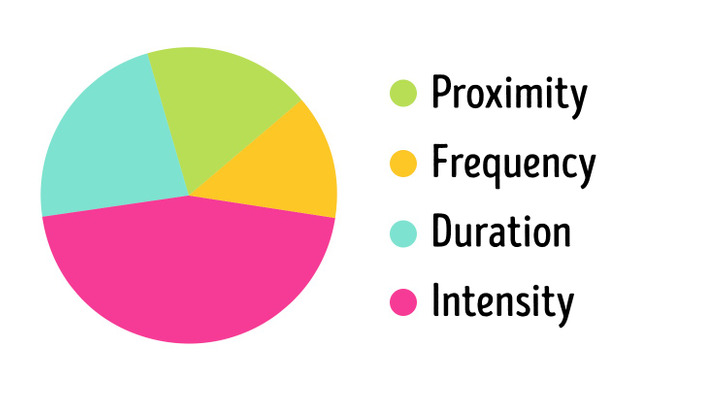
This formula reflects the main characteristics necessary for strong trust and friendship between two people. It will work if you need to make friends with a business partner, a new boss, or get closer to the person you are in love with.
Are you going to use these tricks from now on? Or are you already using them and probably are aware of other secrets? Please tell us about them in the comments!


